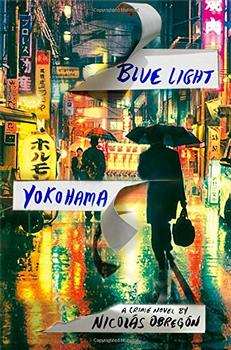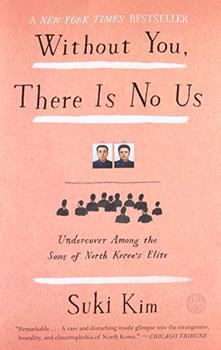Summary | Excerpt | Reviews | Beyond the book | Read-Alikes | Genres & Themes | Author Bio

An Inspector O Novel
by James ChurchWhen the wife of a North Korean diplomat in Pakistan dies under suspicious circumstances, O is told to investigate, with a curious proviso: Don’t look too closely at the details, and stay away from the question of missiles. Soon, however, the Inspector discovers he is up to his ears in missiles - and somebody wants him dead.
The critically acclaimed A Corpse in the Koryo brought readers into the enigmatic workings of North Korean intelligence with the introduction of a new kind of detective---the mysterious Inspector O. In the follow-up, Hidden Moon, O threaded his way through the minefield of North Korean ministries into a larger conspiracy he was never supposed to touch.
Now the inspector returns . . .
In the winter of 1997, trying to stay alive during a famine that has devastated much of North Korea, Inspector O is ordered to play host to an Israeli agent who appears in Pyongyang. When the wife of a North Korean diplomat in Pakistan dies under suspicious circumstances, O is told to investigate, with a curious proviso: Don’t look too closely at the details, and stay away from the question of missiles. O knows he can’t avoid finding out what he is supposed to ignore on a trail that leads him from the dark, chilly rooms of Pyongyang to an abandoned secret facility deep in the countryside, guarded by a lonely general; and from the streets of New York to a bench beneath a horse chestnut tree on the shores of Lake Geneva, where the Inspector discovers he is up to his ears in missiles---and worse. Stalked by the past and wary of the future, O is convinced there is no one he can trust, and no one he can’t suspect. Swiss intelligence wants him out of the country; someone else wants him dead.
Once again, James Church’s spare, lyrical prose guides readers through an unfamiliar landscape of whispered words and shadows, a world wrapped in a level of mystery and complexity that few outsiders have experienced. With Inspector O, noir has a new home in North Korea, and James Church holds the keys.
James Church has crafted the quintessential quiet man trying his best to do his job within a corrupt and volatile political system while not allowing its values to reset his own moral compass. The narrative says it all as Inspector O's first person account unveils a man of few words – indeed the dialogue is spare almost to the point of stark – but with incredibly picturesque and insightful observations. O is at once a man of his country, one gets a picture of a land of lean beauty and unforgiving climate, and of his own personal history, but not of his country's political regime...continued
Full Review
(687 words)
This review is available to non-members for a limited time. For full access,
become a member today.
(Reviewed by Donna Chavez).
North Korea
James Church paints a grim picture of what life is like and how a government
agency functions within North Korea. It is a picture in bold contrast to the one
portrayed by the official
website of
the Democratic People's Republic of Korea (DPR). The ideals, as stated by Kim
Il-Sung, predecessor to current leader Kim Jong Il, are that, "the superior
organism always help [sic] the inferior one. The superior always assist [sic]
the subordinates and he goes always to the working areas to understand the real
situation and take [sic] the correct measures to solve the problems; he gives
preference to the political work, to the people's work in all the activities,
and improves the enthusiasm and the creative initiative...
This "beyond the book" feature is available to non-members for a limited time. Join today for full access.

If you liked Bamboo and Blood, try these:

by Nicolas Obregon
Published 2017
Haunted by his own past, his inability to sleep, and a song, 'Blue Light Yokohama,' Iwata is at the center of a compelling, brilliantly moody, layered novel sure to be one of the most talked about debuts in 2017.

by Suki Kim
Published 2015
A haunting memoir of teaching English to the sons of North Korea's ruling class during the last six months of Kim Jong-il's reign
Talent hits a target no one else can hit; Genius hits a target no one else can see.
Click Here to find out who said this, as well as discovering other famous literary quotes!